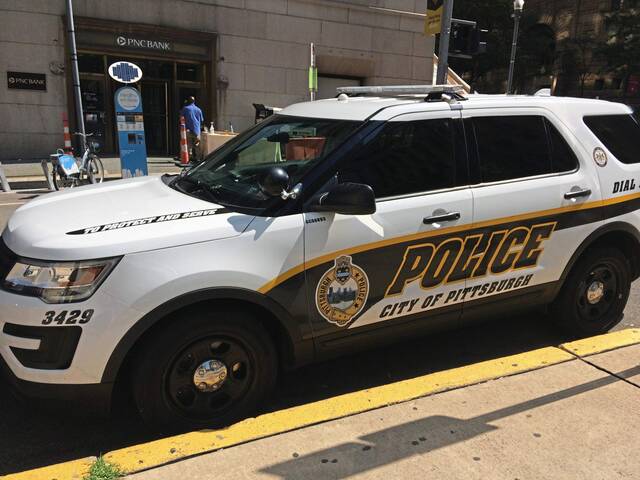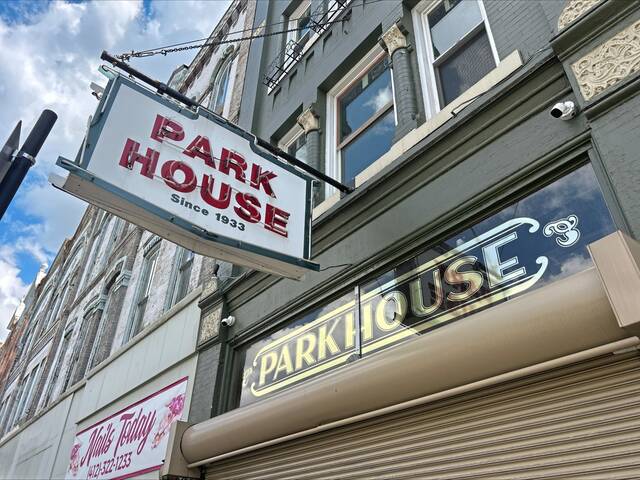Pittsburgh has had electric scooter sharing for nearly two years now. A new study from the e-scooter provider Spin reveals more about who rides them, how often and for what purpose.
One of the biggest takeaways from the recently released Spin study is that ridership is larger and more varied than popular conceptions that e-scooters are mostly just used for recreation.
Spin recorded more than 480,000 e-scooter trips in 2022. With a rotating fleet of about 750 to 1,500 scooters in Pittsburgh, that means that each scooter averages at least one trip a day. This is down compared to 2021, when the company logged more than 576,000 scooter trips, according to an audit by Pittsburgh’s Department of Mobility and Infrastructure.
Spin rides start at $1 to unlock a scooter and then 39 cents per minute riding.
About 30% of riders report having ridden a scooter for recreation and only 12% report recreation as their sole reason for using scooters — like riding around Point State Park for fun.
More riders are using scooters for commuting purposes (48%) or meeting family/friends (45%). About 23% use Spin scooters for dining out/shopping purposes and 19% use them for essential errands.
Jason Shaffner, Spin’s general manager based in Pittsburgh, said the company’s Pittsburgh ridership figures exceeded his expectations.
“It is a very wide demographic of people that ride scooters for a wide variety of reasons,” Shaffer said. “This is a legitimate form of transportation to a lot of people.”
Who rides scooters?
Spin’s ridership follows closely with Pittsburgh’s racial demographics, which is about 65% white, 23% Black, 5.6% Asian and 3.5% Latino, Shaffer said. He said a disproportionate amount of young people (ages 18-24) ride scooters and that group makes up 50% of Spin’s ridership.
Approximately half of riders fall under Allegheny County’s median household income level, which is about $66,000 a year. And 33% of scooter users report having no access to a vehicle, and 18% of them report having occasional vehicle access.
Students remain heavy users of Spin scooters, but less so than in 2021. Part- and full-time students accounted for about 33% of scooter users in 2022, which is down from 40% in 2021.
While overall scooter rides are down compared to 2021, Spin’s 480,000 trips still easily outnumber POGOH, Pittsburgh’s bike sharing service, which recorded about 80,000 trips in 2022.
Where people ride
Spin said Downtown and Oakland have the highest use of scooters. Shaffer said Spin has been working to expand the stretch of the scooters, and that nearly every Pittsburgh neighborhood has experienced a presence of scooters at some time.
About half of Pittsburgh’s 90 neighborhoods experienced more than 10 trips a day between May and October of last year.
Scooter trip lengths average between three-quarters of a mile and a mile, and about 80% of trips are under 1.5 miles, according to the study.
To reach low-income neighborhoods, Shaffer said Spin also provides Spin Access zones in places like Manchester, the Hill District and Hazelwood where all rides originating in those neighborhoods are provided at discounted rates.
This program is an expansion of Spin Access, which allows riders who use government assistance programs to have access to deeply discounted rides. However, according to the 2021 audit, only 0.1% of unique spin users signed up for Spin Access that year.
Will the scooter pilot be renewed?
The Spin service was first authorized in July 2021 after the state government created a pilot program for Pittsburgh to become the first city in Pennsylvania to allow e-scooters.
Shaffer is hopeful that Spin’s ridership data show the pilot has been successful and will encourage the state legislature to extend the use of e-scooters in Pittsburgh.
He was pleased to see that 29% of riders were using Spin scooters to connect with other transit options like public transportation. The study said that number increased from 15% in 2021.
“We expect to get renewed. We have established something here that would be disappointing to a lot of people if removed,” Shaffer said.
Some local advocacy groups are opposed to scooters in Pittsburgh, and believe the pilot shouldn’t be renewed and legislators should focus their efforts on other mobility priorities such as fixing the city’s sidewalks.
Laura Wiens, executive director of Pittsburghers for Public Transit, said the numbers show Spin scooters are merely providing more mobility options for people that already have multiple options. While 30% of spin scooter trips are replacing vehicle trips, she said that 65% are replacing walking, biking or public transit, all of which have a better carbon footprint.
“We should be focusing on the sidewalk design and replacement, and instead are talking about a product that serves a very niche audience, which I think is the biggest problem with the thing,” she said.
Disability advocates have also criticized scooters for blocking sidewalk access when they are illegally parked.
Shaffer said that 3% of scooter trips end in parking jobs that block sidewalk access. He said the company is working to lower that, and has implemented warnings, fines and suspensions for riders who park the scooters improperly.
He said the warnings have been effective. Of the people who get warnings, 92% fail to reoffend.
Pittsburgh City Council is hosting a public forum on Spin e-scooters at 2:30 p.m. Wednesday in council chambers.








